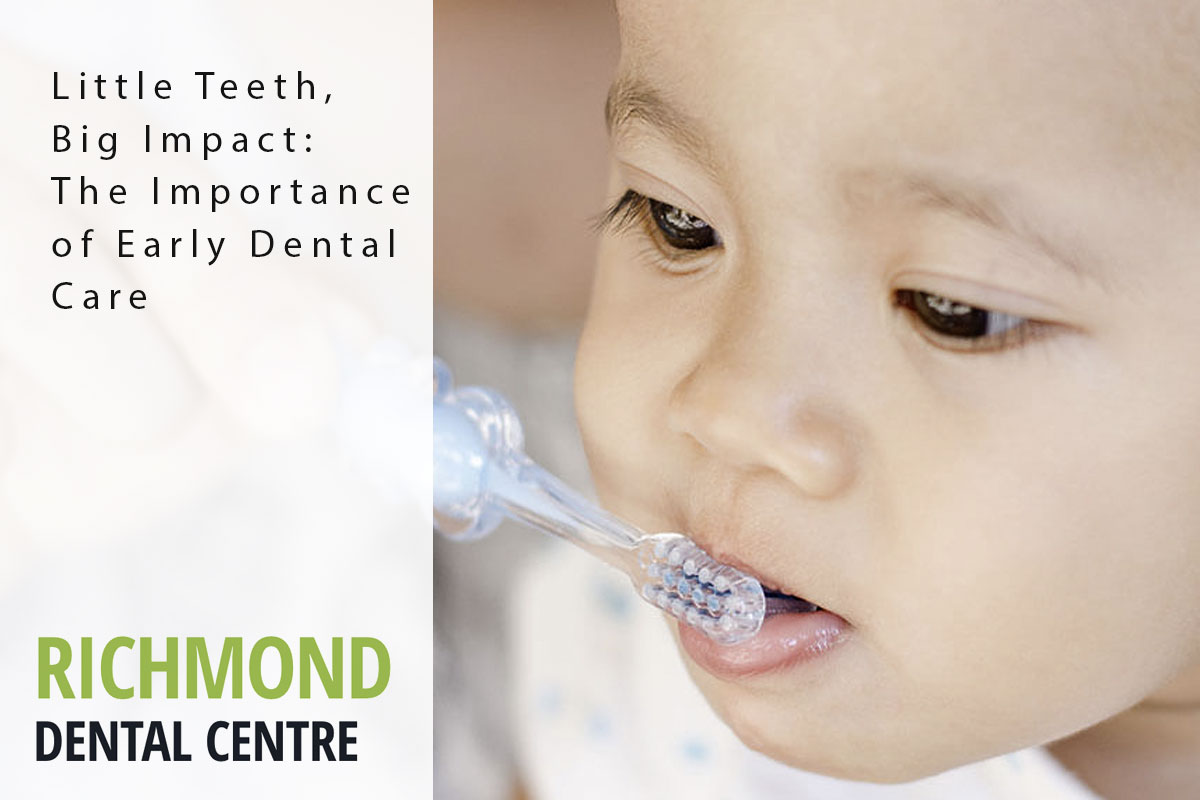Many view dental care as primarily for adults, but it should commence as early as before a child’s first tooth emerges. Despite their small size, these baby teeth significantly influence a child’s overall health and well-being.
Common Dental Issues in Children
Adults often assume that baby teeth aren’t as important as permanent teeth because they eventually fall out. However, baby teeth play an essential role in a child’s development. Here are common dental issues that children face:
- Tooth Decay (Cavities): Tooth decay is the most common dental issue among children. It occurs when bacteria in the mouth produce acids that erode tooth enamel, leading to cavities. Factors contributing to tooth decay include poor oral hygiene, sugary foods, and infrequent dental check-ups.
- Gum Disease (Gingivitis): Gingivitis, an early stage of gum disease, can affect children, primarily due to inadequate brushing and flossing. Signs of gingivitis may include red, swollen gums that bleed during brushing.
- Malocclusion: Malocclusion refers to misalignment or improper positioning of teeth when the jaws are closed. It encompasses conditions like overbites, underbites, and crowded teeth, which may necessitate orthodontic treatment.
- Dental Trauma: Accidents or falls can result in dental trauma, such as chipped, cracked, or knocked-out teeth. Prompt dental care is essential in addressing these issues and minimizing long-term damage.
- Tooth Eruption Problems: Some children may experience challenges with the normal eruption of their teeth, including delayed or impacted tooth eruptions. These issues can lead to discomfort and misalignment.
The Benefits of Preventive Dental Care
Preventive dental care in children offers several significant benefits:
- Early Problem Detection: Regular dental check-ups for children help dentists detect dental issues at an early stage, preventing them from becoming more severe and costly to treat.
- Cavity Prevention: Preventive care includes professional cleanings, fluoride treatments, and dental sealants, all of which help prevent cavities and tooth decay in children.
- Gum Disease Prevention: By monitoring and treating gum disease early, preventive care ensures that gum issues like gingivitis do not progress to more severe forms of periodontal disease.
- Proper Tooth Development: Dentists monitor children’s tooth development and alignment, identifying issues that may require early intervention or orthodontic treatment.
- Instilling Healthy Habits: Regular dental visits help children become accustomed to dental care, reducing fear and anxiety associated with dental appointments and promoting a lifelong commitment to oral health.
- Reducing Dental Anxiety: Early and positive experiences at the dentist’s office can reduce dental anxiety in children, making future dental visits less stressful.
- Preventing Tooth Loss: Preventive care aims to preserve natural teeth, reducing the risk of tooth loss and the need for costly restorative procedures.
- Boosting Confidence: Healthy teeth and a beautiful smile boost a child’s self-esteem and confidence, positively impacting their overall well-being.
Tips for Maintaining Good Oral Hygiene in Children
Establishing good oral hygiene habits early on is crucial for maintaining healthy teeth and gums. Here are some tips for maintaining good oral hygiene in children:
- Initiate Brushing Early: Begin brushing as soon as the first tooth emerges, using a soft-bristled brush and a small amount of fluoride toothpaste. Brush twice daily, ensuring thorough cleaning of all tooth and gum surfaces.
- Flossing Routine: Incorporate daily flossing to eliminate food particles and plaque from between teeth.
- Monitor Diet: Restrict sugary beverages and snacks. Instead, advocate for water consumption and promote a diet rich in fruits, vegetables, and whole grains.
- Avoid Bottle Bedtime: Discourage bedtime bottle or sippy cup usage. Milk and juice can contains sugars that contribute to tooth decay.
- Transition to a Regular Cup: Encourage the switch to a regular cup as soon as possible. This prevents malocclusion and facilitates proper speech development.
- Regular Dental Check-ups: Schedule dental check-ups every six months or as advised by the dentist to monitor oral health and address any emerging issues promptly.
How to Make Dental Visits Enjoyable for Children
Dental appointments might seem daunting to children, but parents can take steps to make them more pleasant:
- Pre-Visit Discussion: Have a conversation with your child about the dentist’s visit. Explain the procedures and address any queries or concerns they may have.
- Comfort Items: Allow your child to bring a cherished toy or comfort item to the appointment for added reassurance.
- Toothbrush Selection: Involve your child in selecting a fun toothbrush and toothpaste for their daily oral care routine.
- Positive Reinforcement: Praise your child for maintaining good oral hygiene practices and for their bravery during the appointment, reinforcing positive behavior.
- Choose a Pediatric Dentist: Consider opting for a pediatric dentist with specialized training and child-friendly equipment, ensuring a more comfortable and reassuring dental experience for children.
Conclusion
Ensuring early dental care is vital for sustaining healthy teeth, gums, and overall well-being. Initiating dental check-ups at a young age, instilling proper oral hygiene practices, and averting dental issues can pave the way for a lifelong journey of vibrant, cavity-free smiles. By adhering to the guidance provided in this article, you can actively contribute to your child’s optimal oral health and cultivate a positive perception of dental care. Always remember, though small, those little teeth hold significant sway over your child’s life. Book at appointment today with the Richmond Dental Centre. Call (604) 273-3368 to schedule a dental appointment.







